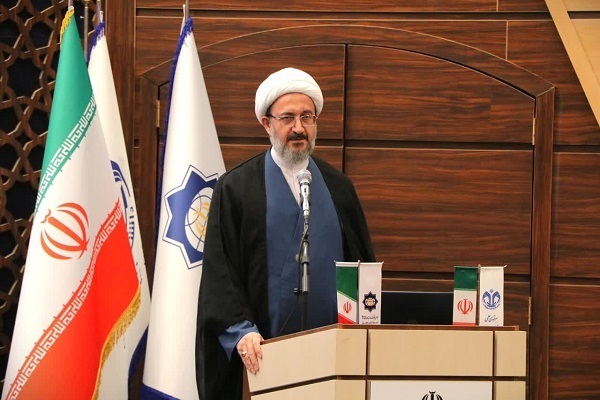Islamic Studies Conference Seeks to Bridge Gaps Between Research Centers: Scholar

Addressing the opening ceremony of the 1st International Conference of Directors of Educational and Research Centers in Islamic Studies in Qom, Sharifi pointed to the importance of fostering collaboration among Islamic studies institutions worldwide.
Sharifi noted that while numerous Islamic studies centers operate across the Islamic world, many remain unaware of each other’s activities. "Most efforts are conducted individually, without the establishment of organizational or networked connections between these centers," he said.
Sharifi emphasized the necessity of creating a cohesive network among these institutions, describing the conference as an opportunity to identify their capacities and introduce them to the potential of Islamic studies centers in Iran.
“More than 500 academic journals have been identified worldwide that specialize in Islamic studies. If these journals are interconnected, they could form a vast network of Islamic studies experts, fostering significant scientific and cultural synergy,” he stated.
Read More:
The conference also aims to address existing gaps, deficiencies, and needs in the field of Islamic studies. Sharifi pointed out that certain needs might remain unrecognized in Iran but are pressing elsewhere, or vice versa, where Iran's unique cultural context may offer solutions.
A third goal of the event, according to Sharifi, is to showcase the achievements of Iranian academic institutions in Islamic studies. "Over the past 45 to 46 years, thanks to the Islamic Revolution, Islamic studies in Iran have advanced more extensively and profoundly than at any other time in Islamic history."
The two-day event has been jointly organized by the Islamic Culture and Relations Organization (ICRO) and Qom University.
The conference brings together nearly 40 representatives from 16 countries, including university presidents and department heads specializing in Islamic studies. Attendees hail from Iraq, Pakistan, Bangladesh, Indonesia, Malaysia, Thailand, Afghanistan, Senegal, Tanzania, Kazakhstan, Kyrgyzstan, Turkey, and Russia.
Read More:
In addition, more than 30 Iranian academics are participating to explore avenues for collaboration in Islamic education and research.
The program includes a series of expert panels aimed at fostering partnerships in diverse areas of Islamic studies. Discussions will cover topics such as jurisprudence and theology, philosophy, Islamic mysticism, comparative theology, religions and sects, Islamic governance, Islamic law and economics, as well as Islamic lifestyle and family studies.
4261660



